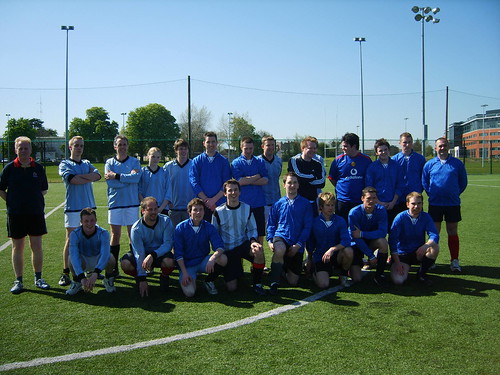Have you ever been disappointed with God? You thought things would all be great when you started out with Jesus. But then bad things happen. You have that meeting with the doctor as he gives you bad news. Or as you stand at the graveside of your loved one. Or perhaps other people seem to be getting on so much better than yourself. You’re disappointed with God. Annoyed that He doesn’t seem to be as close as you wish.
And yet, things can get worse as you dwell on your disappointment. It affects all that you do and think. It can also lead to disbelief. After all, if God has promised to be with us, then where is he? Why do we face these hard times? Is he not able to keep his promises, or does he not care?
The two followers of Jesus we find in our reading are disappointed. Watch them trudge along the road, gloomily talking to each other. It is the afternoon of that first Easter Day, and they’re on their way back to Emmaus. The journey is seven miles or so – a good walk that will take them a couple of hours. Roughly the distance of Magheralin to … (Portadown?) Plenty of time to think and talk.
But notice – even though it’s that first Easter Day, the day of Jesus’ resurrection, they don’t seem to have the joy of knowing that Jesus is alive as they journey. Instead, they are disappointed and disbelieving.
They’re disappointed with the way things have happened over the past week. You can see it in their body language and in what they say as they encounter the stranger on the road. Look at verse 17. ‘They stood still, their faces downcast.’ Their hearts ache, and their faces show their pain and sorrow as the stranger asks what they’re talking about.
And in their sorrow, there’s also room for some surprise. How can the stranger not know about what had happened? As Cleopas says to him, ‘Are you only a visitor to Jerusalem and do not know the things that have happened there in these days?’ (18). The force of his question is even stronger in the ESV. ‘Are you the only visitor … who does not know?’ The things that had been so important to them seemed to have passed others by. As the stranger asks what things, hear the disappointment in their voice, as the story of Jesus is told.
“He was a prophet, powerful in word and deed before God and all the people. The chief priests and our rulers handed him over to be sentenced to death, and they crucified him; but we had hoped that he was the one who was going to redeem Israel.”
They had followed this Jesus, the teacher, the prophet. He had shown his power in both his teaching, and in his miracles. They were convinced that the kingdom of God was here. The Christ had come. And then it all seemed to go wrong. The religious leaders had decided he should die. They crucified him. And hear the disappointment coming out in this sentence – ‘but we had hoped that he was the one who was going to redeem Israel.’
All their hopes had been pinned on this Jesus. Their hope had seemed to be well placed, because of the powerful ministry of Jesus. But then he had died on the cross. It had all gone wrong. So much for the redemption of Israel. We had hoped. But not now.
Are there things that we hope for, but circumstances (or God’s purposes) turn out to be very different? You started out on a relationship, with big plans for the future. It seemed to be the right thing. Then it all went wrong. We had hoped…
But notice, that as well as the tremendous disappointment these two are facing, they are also caught in the trap of disbelief. On that day of resurrection, they were stuck in the depths of despair. In verse 22, they tell the stranger about the experience of the disciples that day. “In addition, some of our women amazed us. They went to the tomb early this morning, but didn’t find his body. They came and told us that they had seen a vision of angels, who said he was alive. Then some of our companions went to the tomb and found it just as the women said, but him they did not see.” (22-24).
Into the middle of the sadness came the reports of the women who had visited the tomb and seen the angels, and of the other companions who had went to the tomb to check it out. Confusion reigns. But has their disappointment lifted? No, rather, they move from disappointment further down, to disbelief. Rather than staying to check out what they’ve heard from the others, or waiting to think about what they’ve heard and what it might mean; they have begun their long journey home. Perhaps this was even part of their disappointment – that other people seemed to be getting on much better, or other people had had these experiences of angels. They had none of that. They only had their disappointment, and then their disbelief – finding it hard to believe what their friends had said.
Could it be, though, that in not believing their friends, they were ultimately not believing God and his word? We’ll see in a minute or two.
So the two people travel along the road, speaking with the stranger. Verse 16 tells us they were kept from recognising him. Yet we know who this stranger is – none other than the Risen Jesus himself. Why does he not reveal himself straight away – stopping them immediately and telling them that they’ve no reason to be sad or confused, because he is alive?
Well, had that happened, they would have been encouraged, no doubt about that. But would they have grown in the way that they could, by going through the learning curve?
Notice that the Risen Christ is journeying with them – even though they don’t realise it, he is with them in their pain and sadness and confusion. At times we also seem to forget that Jesus is with us, especially at those times when he seems farthest away.
Notice next, that the Risen Christ teaches them from God’s word. They were ultimately disappointed and disbelieving because they had failed to understand God’s purpose in the world and failed to understand God’s word.
Hear the rebuke he had for them: ‘How foolish you are, and how slow of heart to believe all that the prophets have spoken! Did not the Christ have to suffer these things and then enter his glory?’ (25-26).
They had been disappointed because they had though Jesus was going to redeem Israel. Then it seemed to have gone wrong with his death on the cross. But according to Jesus, it was in this death and resurrection that he did indeed redeem Israel, and all God’s people. Far from the cross being a tragic accident, rather, it was the means of accomplishing the rescue mission, according to God’s plan revealed in Scripture.
As Paul wrote in 1 Corinthians (and as we echo him in the words of the Nicene Creed), ‘For what I received I passed on to you as of first importance: that Christ died for our sins according to the Scriptures, that he was buried, that he was raised on the third day according to the Scriptures.’ (1 Cor 15:3-4). Far from being purposeless, the cross had been written and spoken about before it had ever happened.
Jesus then launches into what I imagine was the ultimate Bible study. ‘And beginning with Moses and all the Prophets, he explained to them what was said in all the Scriptures concerning himself.’ (27) Jesus explaining his life and death and resurrection from the Hebrew Scriptures.
No wonder the disciples felt their hearts burn within them! (32). Jesus was opening up the Scriptures to them, helping them to understand what they were ultimately all about.
Do we encounter the same thrilling experience of encountering God in his word? As we read and hear the Bible read and explained, do we feel that burning? The words we hear and speak are not lifeless words – they’re not just interesting accounts of ancient life. These are the very words of God – the words of life and salvation. Living and active, and powerful words.
The travellers arrived at Emmaus, and the stranger seemed to be going on, yet he was persuaded to stay with the two. It was getting late, and he shouldn’t be travelling. Much better to stay with them for the evening. And as they came to the table, it was the stranger who took the bread, gave thanks, broke it and began to give it to them.
Was this unusual, for the guest to serve the meal? Perhaps. Yet in the unusual act, there was also something very familiar about it. Those actions – the taking, thanking, breaking and giving are the same as in the feeding of the 5000 (Luke 9:16 – ‘Taking the five loaves of bread and the two fish and looking up to heaven, he gave thanks and broke them. Then he gave them to the disciples to set before the people.’) and in the Last Supper (Luke 22:19 – ‘And he took bread, gave thanks and broke it, and gave it to them, saying “This is my body given for you; do this in remembrance of me.”’). Or was it as they saw the nail prints in his hands – those ‘wounds of love yet visible above in beauty glorified’?
Either way, they instantly recognised Jesus, and knew that he was alive! In that moment of recognition, he disappeared from their sight, yet they weren’t sad at their loss. Rather, through their encounter with the Risen Lord – through his word spoken, and through his presence with them, and ultimately, through remembering his sacrifice and recognising him in the breaking of the bread – they were changed and transformed!
Gone was the disappointment of Good Friday. Gone was the disbelief of their friends and of God. Gone, even was their tiredness. Now, these disciples are transformed. How can we see that?
Well, remember how they had trudged along the road from Jerusalem to Emmaus, feeling every step of the 7 miles? Now, despite the lateness of the hour, they set out back to the city. Their sadness has been transformed into joy. They must tell others about it!
So off they go, back to Jerusalem. There they find the Eleven and the others with them. There they find the transforming power of the risen Christ in the Eleven too. Notice that verse 34 is the testimony of the disciples who had stayed in Jerusalem: “It is true! The Lord has risen and has appeared to Simon.” They too had encountered Jesus, and had been changed.
The it is the turn of the two from Emmaus to tell their story, ‘and how Jesus was recognised by them when he broke the bread.’ (35). Together, the disciples share in the joy of the risen Lord. Nothing will be the same again.
Are there situations in which you are disappointed at how things are going? You feel that all hope is gone. Nothing can change. Your faith in God is being stretched to the limit. You think God is far away and is not interested. Take heart tonight from the experience of those disciples on the road to Emmaus.
Jesus was not far from them. He was journeying with them in their sadness. He was with them in their pain. But more than that, Jesus brought God’s word to clarify and explain; to encourage and show God’s purposes. And then, they came to recognise Jesus with them. They were transformed through their encounter with the Risen Christ.
Jesus is with you, too, in your pain. His power is sufficient for you. And as we break bread tonight, we remember his death on the cross, and his mighty resurrection – defeating sin and death, and giving us life and hope. Jesus is with us. Will you be transformed by his presence in your life?






